'Kids' Omakase' Voice of the Children Community Participation Project
Cross-professional Collaboration Lets Children Speak Up for the Community
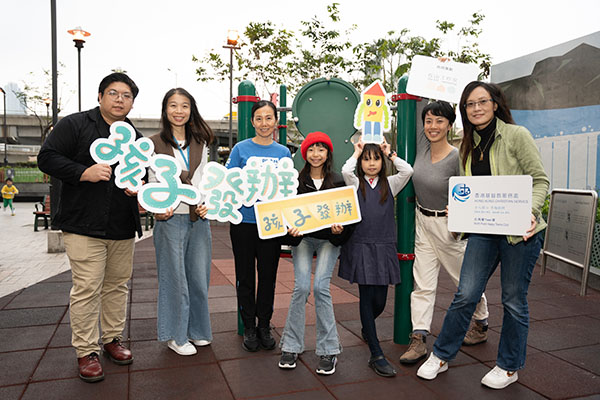
On weekends, it's common to see foreign domestic helpers sitting on the floor in various corners of the community. Have you ever wondered if they are comfortable sitting on cardboard? 'Due to the lack of community space and leisure time, they have no choice but to rest on cardboard,' said Ying-tung Man, a child community designer. Through the 'Kids' Omakase' Voice of the Children Community Participation Project (hereafter referred to as 'Kids' Omakase'), Ying-tung and four children learned handicrafts together, weaving second-hand clothes into seat cushions, which were praised by the foreign domestic helpers. 'We want the places where the foreign domestic helper sisters rest to be better,' Ying-tung said. 'I hope adults will value our ideas and not think that what we say is just child's play. Children can have their own views on social issues and speak up.'
Preserving Children's Voices to Promote 'Right to Participation'
With support from Plan International Hong Kong, Hong Kong Christian Service (HKCS)'s North Point Happy Teen Club collaborated with the Hill Workshop to launch the year-long 'Kids' Omakase' in 2022. Combining the expertise of social workers and artists, the project used art intervention methods to help 15 'child community designers' aged 8 to 11 in exploring North Point. They proposed three creative solutions to address community issues, which were promoting the local culture of North Point, improving resting facilities for domestic helpers, and addressing air quality issues in the district. The process involved different stages, such as community issue identification and planning of community actions. An exhibition showcasing their achievements was held from 30 December 2023 to 1 January 2024.
Dr Kanie Siu, CEO of Plan International Hong Kong, shared that they focus on promoting children's 'right to protection' and 'right to participation' in Hong Kong. Launched in 2018, the 'Voice of the Children' project aims to inspire children to understand their own rights and care about community affairs, big and small. 'Kids' Omakase' is the phase III of the 'Voice of the Children' project. Unlike the first two phases, Kanie said that 'Kids' Omakase' adopted new approaches such as art education and sensory experiences, and the issues explored were more in-depth, not limited to children's basic needs. 'In the process, we are encouraging children's observation and thinking about the community and promoting more substantial and quality participation, which is not easy.'
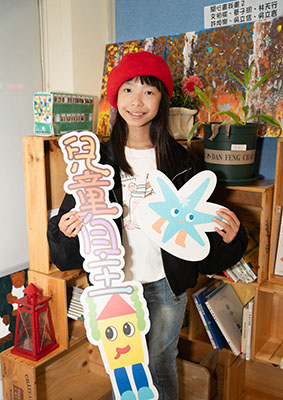
Leveraging Art Mediums to Unleash Children's Creativity
The Hill Workshop has used art to help many youth, adults, and the elderly understand and empower their communities, and 'Kids' Omakase' is their first project with children as the main target. 'Art is an open medium that allows for the unknown, with no standard answers. It provides soil for children to explore their uniqueness autonomously,' said Yadi Yang from the Hill Workshop. In addition to unleashing creativity, art mediums also encouraged children to be bold and to feel connected with the community through their bodies.
For this reason, in 'Kids' Omakase', a group of child community designers once experienced sleeping on the streets with cardboard; measured the depth of the sea using ropes and stones; calculated wind speed by flying kites; searched for foods of different colours in the community; imitated Lion Rock using body movements; and used their bodies as tools for painting. 'Experiencing the community doesn't necessarily mean joining guided tours or listening to adults,' Yadi said. 'Letting children do things they've never tried before will make them understand that "it turns out the community can be approached in this way." '
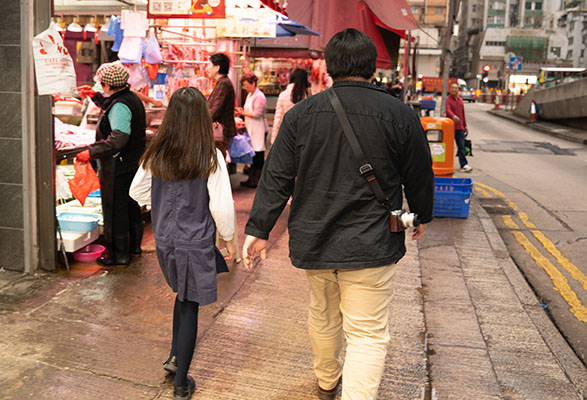
Believing in Children's Autonomy
Eva Yuen, North Point Happy Teen Club Service Supervisor, said that in addition to promoting children's right to participation, HKCS also hopes to promote children's development and transformation through 'Kids' Omakase'. Social worker Cathy Leung shared that in order to let children understand what rights are, a cooking activity was held in the evening, with ingredients, cooking methods, and dishes all suggested by the children so that they could really 'take charge'. This later evolved into cooking breakfast together on Sunday mornings before regular activities. 'This is not only about the desire for good food, but also about letting children demonstrate their autonomy and feel a sense of satisfaction.'
Cathy said with a smile that the group of children responsible for promoting local culture was the most energetic, always unable to sit still when others were talking. But after more than a year of 'Kids' Omakase', they had learned to accept and appreciate each other's differences, and their self-confidence, sense of ability, and social skills had all improved. Cheuk-yau Lo is from this energetic group. During the interview, Cheuk-yau could hardly sit still, but that didn't stop her from sharing her achievements. 'North Point's community culture has good food and fun.' Young as she is, Cheuk-yau is already very familiar with the North Point community. In 'Kids' Omakase', Cheuk-yau visited Chun Yeung Street, Sunbeam Theatre, North Point Terminus, interviewed the owner of Dak Hing Lung tofu shop, and even learned to make tofu pudding. She suggested that the government should hold exhibitions of other districts' culture in each district, such as holding a North Point culture exhibition in Kowloon, 'because people in North Point all know about things in North Point, but people in Kowloon don't.'
Seeing Cheuk-yau talking non-stop, social work assistant Hugo Ho said that Cheuk-yau didn't talk much before and even needed her mother to speak for her. Hugo recalled that in the early stages of 'Kids' Omakase', the children would guess what the adults wanted them to answer and felt that questions without standard answers were tricking them. Therefore, social workers and instructors worked hard to build an atmosphere of trust. From grouping to community solutions, they respected and believed in the children's autonomy. 'Actually, I was a bit worried at first when I saw the children not being very attentive,' Hugo admitted. Children's pace is different from adults, which doesn't mean they can't do it. Instead, it requires adults' trust in them. 'As a result, in the later stages, the children would actively do rehearsals and preparations for the exhibition.'
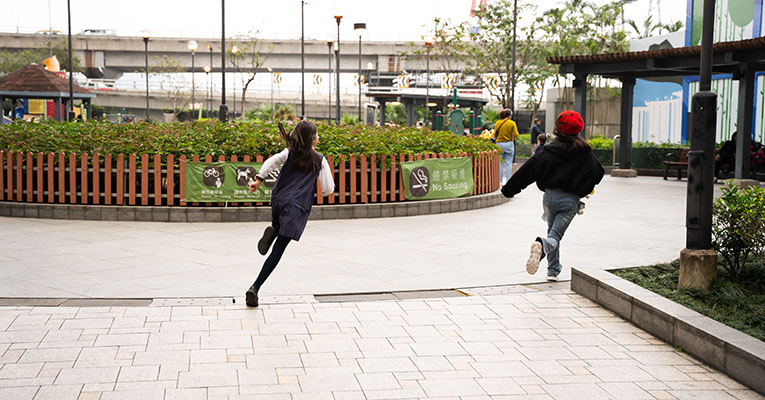
Different Professions, Same Vision
As a cross-professional and cross-generational project, 'Kids' Omakase' involved many different stakeholders, including children, parents, social workers, artists, and numerous adult and professional facilitators. Cathy pointed out that all parties were constantly communicating, coordinating, and adjusting their roles throughout the process.
Regarding the collaboration with HKCS, Kanie appreciated that HKCS has been rooted in the community for many years with rich experience in children's services, and is very trustworthy and open to different ideas. Yadi also said that HKCS is forward-thinking in the development of social services and willing to invest resources to try new things.
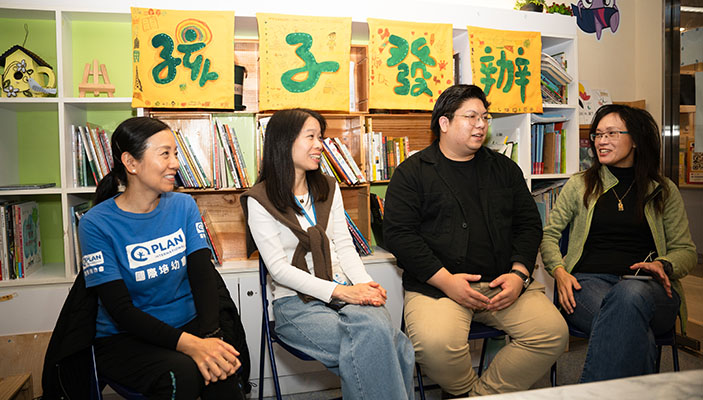
Despite their different professions, the three organisations share the same vision of continuing to promote children's development and right to participation. The experience of 'Kids' Omakase' is an important foundation for their future education and advocacy work. Eva said that several participants in 'Kids' Omakase' were children with special educational needs (SEN), and she had witnessed their growth in the project. She hoped to explore art intervention, community participation and other ways to bring new support and training for SEN children in the future.
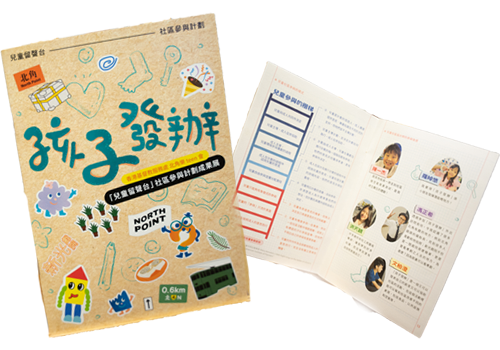
We always endeavour to build strategic partnerships with various corporates and organisations to serve the needy community. If you wish to collaborate with us, please contact our Corporate Development Office.
Tel.: 2731 6298 (Ms Tsang) / 2731 6362 (Mr Chun)
Email: partnership@hkcs.org








